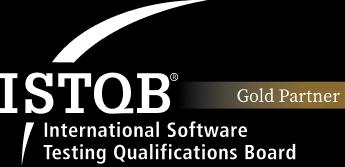
The Benefits of Using LMS Software for Businesses and Education
Nowadays, LMS (Learning Management System) software has become an indispensable tool in training and learning management for businesses and educational organizations. This article will help you better understand the benefits that LMS brings, thereby optimizing training and management processes more efficiently.
I. Why should businesses and educational organizations use LMS software?
Using LMS software in businesses and educational organizations is not just a technological trend (EdTech), but also an essential solution to meet the training and workforce development needs in the digital era. In today’s modern context, where flexibility and resource optimization are crucial, LMS provides a comprehensive approach, helping businesses and educational organizations ensure both training quality and cost- and time-efficiency.
Another important reason is that LMS allows organizations to create a flexible learning environment, meeting the needs of remote and on-demand learning for learners. This not only enhances the learning experience but also enables businesses and educational organizations to expand their training scope and effectively internationalize their programs. Learning Analytics in LMS provides powerful tools to track and evaluate learning outcomes, thereby continuously and systematically improving teaching quality.

Furthermore, in today’s fiercely competitive environment, businesses need a scalable and customizable training solution to adapt flexibly to changes in business operations and market demands. LMS allows organizations to quickly update training content and create new courses without needing to overhaul infrastructure. This ensures continuity in training and helps the organization maintain a competitive edge, responding promptly to changes in the business environment.
Lastly, data security and safety are key reasons businesses and educational organizations should consider using LMS. With modern security systems and compliance with international regulations such as GDPR, LMS ensures that personal information and learning data are tightly protected. This is crucial when learning data becomes a valuable asset in today’s digital age.
In general, using LMS is not only a smart economic choice but also helps businesses and educational organizations create a long-term competitive advantage through effective training management and optimized learning processes, thereby driving sustainable growth for the organization.
II. Benefits of using LMS software
1. Optimizing training and learning processes

LMS software helps businesses and educational organizations automate learning and HR management processes, from distributing learning materials, organizing online courses, to tracking learning behavior and learners' progress through Learning Analytics. This not only reduces the workload for the HR department but also saves time and resources in managing online training.
2. Supporting flexible training
LMS allows learners to access learning content anytime, anywhere, as long as there is an internet connection. This is especially useful for organizations and businesses with dispersed workforces or those needing to provide flexible training according to individual schedules. This remote access also ensures continuity in learning during difficult situations such as pandemics or natural disasters. Microlearning—learning through short, concise lessons—can easily be integrated into LMS, enhancing learning efficiency for busy individuals.
3. Enhancing training quality and effectiveness
By offering tools such as online tests, assessments, and detailed learning outcome reports, LMS significantly improves training quality. Artificial intelligence (AI) and machine learning can also be integrated to personalize the learning experience, making it easier for teachers and businesses to track, analyze progress, and adjust content to suit individual needs.

4. Saving costs and time
Instead of organizing in-person classes and printing materials, LMS allows businesses and educational organizations to digitize the entire training process. This not only reduces operational costs but also optimizes resources, enabling businesses to focus their efforts on core activities. E-learning is scalable, allowing organizations to train a large number of learners without incurring additional infrastructure costs.
5. Enhancing customization and integration capabilities
One of the great advantages of LMS is its ability to be customized to meet the unique needs of each organization. Businesses can easily design courses, tests, and learning materials tailored to their training objectives. Furthermore, modern LMS systems can integrate with other management platforms such as HRM (Human Resource Management), CRM (Customer Relationship Management), and collaboration tools like Microsoft Teams, Google Workspace, boosting operational efficiency and interaction within the organization.
6. Ensuring transparency and data security
Another highlight of LMS is its ability to ensure data security and comply with international regulations such as GDPR. All learning data and personal information of learners are securely stored on digital platforms, ensuring data protection and compliance with personal data protection regulations. Additionally, reports and information are stored transparently, allowing businesses and educational organizations to easily monitor and manage.

7. Meeting long-term training needs
Using LMS software is not only a short-term solution but also a long-term tool helping businesses and educational organizations build continuous training programs, keeping up with the lifelong learning trend. Training programs can be easily updated to meet the developmental needs of businesses and employees, creating a foundation for sustainable development within the organization.
III. Practical applications of LMS software
1. LMS in businesses
1.1. Effective employee training
LMS helps businesses build efficient online training programs, enabling employees to develop skills without interrupting their work. With e-learning courses, employees can learn at their own pace, which enhances productivity and improves professional competency.
1.2. Accelerating the deployment of training programs
LMS allows businesses to rapidly and uniformly deploy training programs on a large scale. Thanks to its digital content management and online material distribution features, all materials and courses are continuously updated, saving time and optimizing resources. This helps businesses quickly adapt to the changing labor market.
2. LMS in education
2.1. Supporting teachers and students
LMS provides teachers and students with a comprehensive learning platform, making it easier to organize online classes, manage study materials, and monitor students' learning progress. This not only helps teachers optimize their teaching but also encourages better student interaction and improved academic performance.
2.2. Creating a flexible learning environment
With LMS, students can learn anytime, anywhere, via mobile devices or computers. This is particularly useful for students who need distance learning or blended learning, helping them take control of their study schedules.
IV. Teamhub - The optimal solution for small and medium-sized businesses and centers
Teamhub LMS is one of the advanced products developed by Tokyo Tech Lab, specifically designed to meet the needs of small and medium-sized enterprises (SMEs). With a user-friendly interface, easy-to-use features, and flexible customization options, Teamhub LMS helps organizations optimize their training processes without requiring significant resource investments. This solution is especially ideal for businesses with limited budgets but still wanting to maintain high-quality and effective training. Here are the reasons why Teamhub LMS is the perfect choice for your business:

1. Reasonable and cost-effective
Teamhub LMS offers flexible service packages at affordable prices, suitable for the budgets of small and medium-sized enterprises. Thanks to its cloud-based platform, businesses do not need to invest in complex technology infrastructure while still being able to deploy an efficient learning management system.
2. Easy integration with other tools
Teamhub LMS integrates powerfully with systems such as CRM (Customer Relationship Management) and HRM (Human Resource Management), helping to synchronize management and training activities. This supports businesses in optimizing operational processes and improving internal efficiency, which is something SMEs always strive for.
3. Supporting flexible training
Teamhub LMS allows employees and learners to access learning materials anytime, anywhere, via mobile devices or tablets. This not only optimizes training time but also enhances employee productivity. This is particularly important for small and medium-sized businesses where employees often take on multiple roles and may not have enough dedicated time for continuous training.
4. Easy to use and quick to deploy
With an intuitive and user-friendly interface design, Teamhub LMS does not require advanced technical skills for deployment. Businesses can easily manage, create courses, and track the progress of employees or learners quickly and efficiently. As a result, businesses can start the training process right away without facing complex technical barriers.
VI. Conclusion
LMS software brings numerous benefits to businesses and educational organizations, from improving the quality of training to optimizing learning management processes. If you're looking for a comprehensive solution to enhance training effectiveness and management, Teamhub LMS is the ideal choice for your organization. Sign up today to enjoy exciting offers and experience over 100 outstanding features of the software for free. Don’t forget to follow Tokyo Tech Lab to learn more about valuable information technology insights!
SHARE THIS ARTICLE
Author
Huyen TrangSEO & Marketing at Tokyo Tech Lab
Hello! I'm Huyen Trang, a marketing expert in the IT field with over 5 years of experience. Through my professional knowledge and hands-on experience, I always strive to provide our readers with valuable information about the IT industry.
More Posts



About Tokyo Tech Lab
Services and Solutions
Contact us
© 2023 Tokyo Tech Lab. All Rights Reserved.







